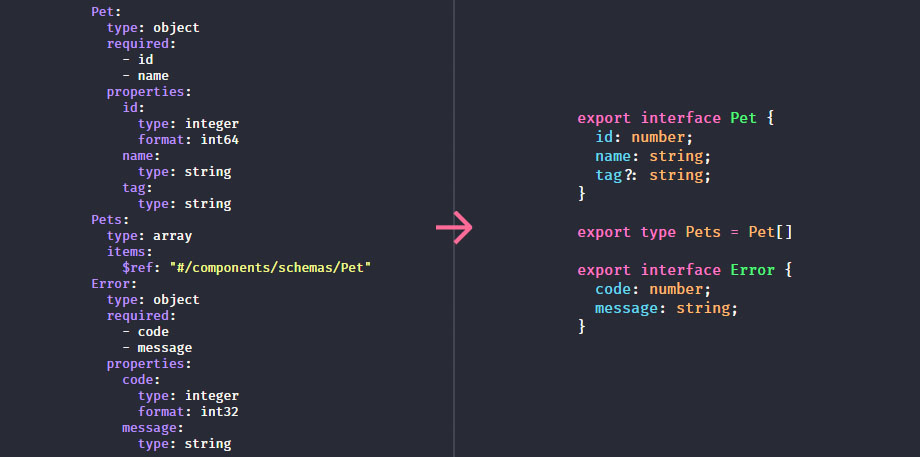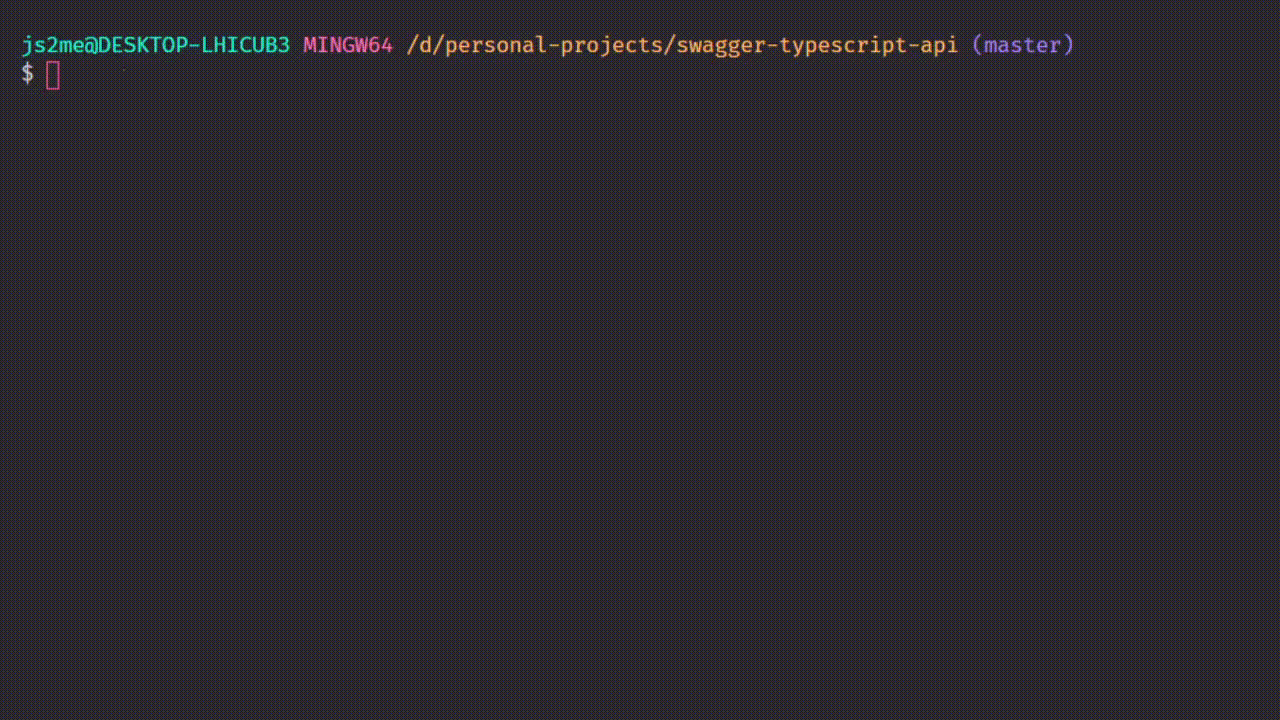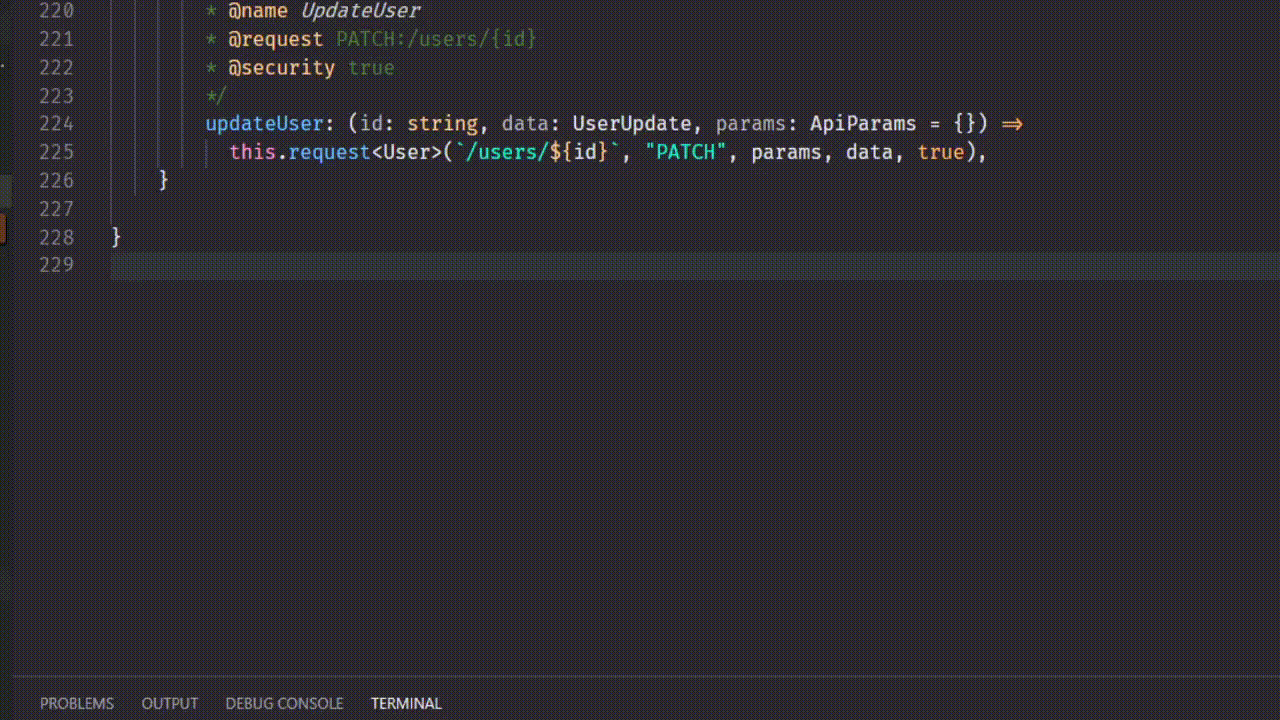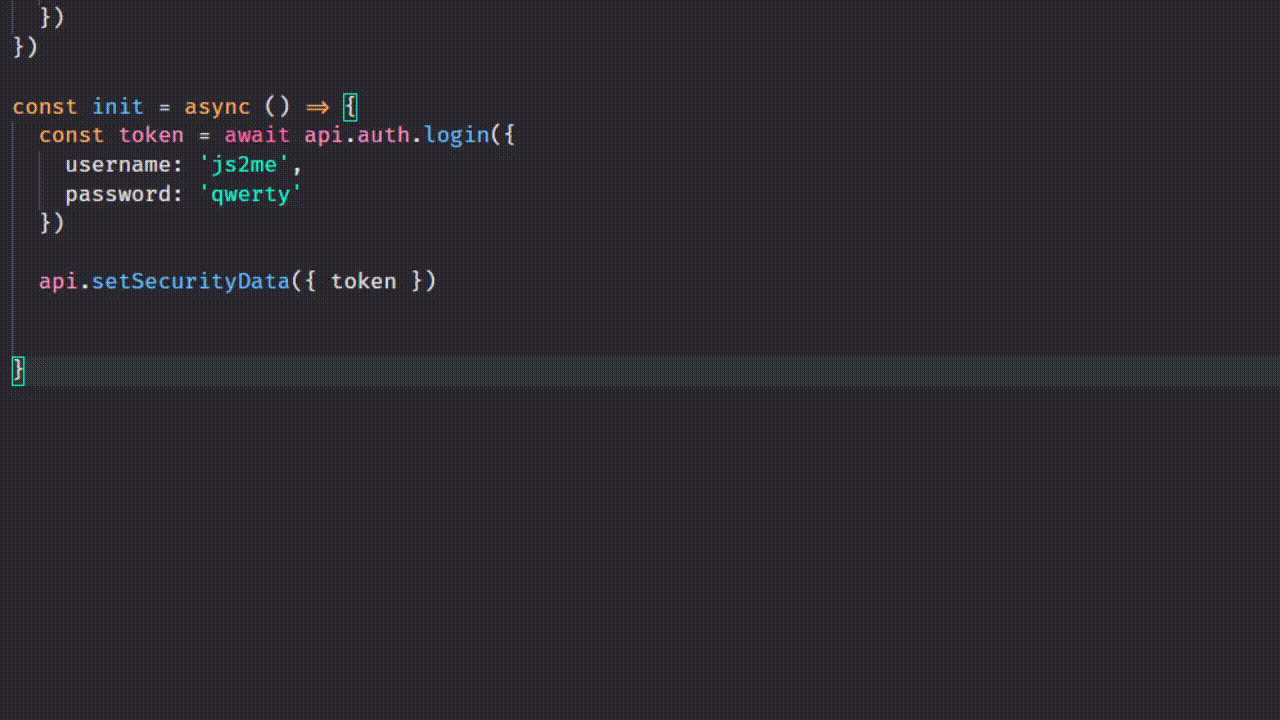swagger-typescript-api-encode v3.1.0
swagger-typescript-api
Generate api via swagger scheme.
Supports OA 3.0, 2.0, JSON, yaml
Generated api module use Fetch Api to make requests.
Any questions you can ask here or in our slack(#swagger-typescript-api channel)

👀 Examples
All examples you can find here
🛑 It is the latest version on mustache templates
Next versions 4.0.0+ will use the ETA templates.
If you want to create fork with mustache templates use mustache-latest branch
📄 Usage
Usage: sta [options]
Usage: swagger-typescript-api [options]
Options:
-v, --version output the current version
-p, --path <path> path/url to swagger scheme
-o, --output <output> output path of typescript api file (default: "./")
-n, --name <name> name of output typescript api file (default: "Api.ts")
-t, --templates <path> path to folder containing templates
-d, --default-as-success use "default" response status code as success response too.
some swagger schemas use "default" response status code
as success response type by default. (default: false)
-r, --responses generate additional information about request responses
also add typings for bad responses (default: false)
--union-enums generate all "enum" types as union types (T1 | T2 | TN) (default: false)
--route-types generate type definitions for API routes (default: false)
--no-client do not generate an API class
--js generate js api module with declaration file (default: false)
--module-name-index <number> determines which path index should be used for routes separation (default: 0)
(example: GET:/fruites/getFruit -> index:0 -> moduleName -> fruites)
-h, --help display help for commandAlso you can use npx:
npx swagger-typescript-api -p ./swagger.json -o ./src -n myApi.tsYou can use this package from nodejs:
const { generateApi } = require('swagger-typescript-api');
// example with url
generateApi({
name: "MySuperbApi.ts", // name of output typescript file
url: 'http://api.com/swagger.json', // url where located swagger schema
})
.then(sourceFile => fs.writeFile(path, sourceFile))
.catch(e => console.error(e))
// example with local file
generateApi({
name: "ApiModule.ts", // name of output typescript file
input: resolve(process.cwd(), './foo/swagger.json') // path to swagger schema
})
.then(sourceFile => fs.writeFile(path, sourceFile))
.catch(e => console.error(e))
// example with parsed schema
generateApi({
name: "ApiModule.ts", // name of output typescript file
spec: {
swagger: "2.0",
info: {
version: "1.0.0",
title: "Swagger Petstore",
},
host: "petstore.swagger.io",
basePath: "/api",
schemes: ["http"],
consumes: ["application/json"],
produces: ["application/json"],
paths: {
// ...
}
// ...
}
})
.then(sourceFile => fs.writeFile(path, sourceFile))
.catch(e => console.error(e))💎 options
--templates
This option should be used in cases when you don't want to use default swagger-typescript-api output structure
How to use it:
1. copy swagger-typescript-api templates into your place in project
1. add --templates PATH_TO_YOUR_TEMPLATES option
2. modify Mustache templates as you like
--module-name-index
This option should be used in cases when you have api with one global prefix like /api
Example:GET:/api/fruits/getFruitsPOST:/api/fruits/addFruitsGET:/api/vegetables/addVegetable
with --module-name-index 0 Api class will have one property api
When we change it to --module-name-index 1 then Api class have two properties fruits and vegetables
📄 Mass media
🚀 How it looks



🛠️ Contribution
You can manually check your changes at schemas in tests folder before create a PR.
To do that have scripts:
- npm run generate - generate API modules from schemas in tests folder
- npm run validate - validate generated API modules via TypeScript
📝 License
Licensed under the MIT License.
3 years ago
